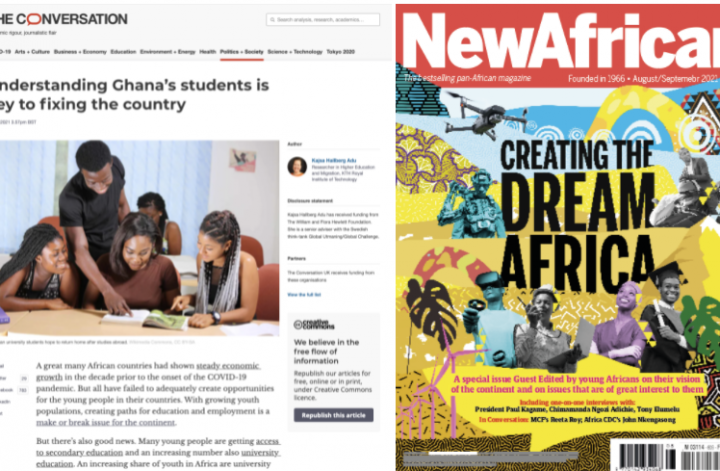Blog Action Day 2012, or #BAD12 for short, is a day where bloggers all over the world together write on one topic. Over the last years, I have participated on themes such as “poverty” and “climate change”. This year a slightly more poetic theme has been chosen: “the power of we”. I thought of providing examples of this “power of we” from three organizations I am involved with here in Ghana. The way I see it, the power of we is about both building a community internally and working for a greater good, together. There are definite overlaps in all three examples:
1. Ashesi University College
Pillars: Leadership, Scholarship, Citizenship.
Mission: to educate a new generation of ethical, entrepreneurial leaders in Africa; to cultivate within our students the critical thinking skills, the concern for others and the courage it will take to transform a continent.
The power of we at Ashesi: Except for stating in our mission statement we are interested in fostering concern for others and change in our community, we locally on campus cultivate an “Ashesi community” by
- having campus wide events where everybody from the security man to the students and lecturers to the President Patrick Awuah are expected to attend,
- having a shared emailing list,
- celebrating eachother’s success and also
- including graduates or workers who leave as part of the community.
Personally, I value this community as a treasured part of my remuneration for the work I do and try to give back by inviting the community to events I organize like and helping to build capacity, especially in social media.
Learn more about Ashesi or read my other posts on Ashesi University College.
2. BloggingGhana
Pillars: Friendship and Technology
Mission and Objectives: to bring the Ghanaian blog community together in real life!
- Serving as a forum for bloggers in Ghana to network and exchange ideas
- Building capacity among bloggers in Ghana
- Accessing new audiences for our blogs through a mutual website (aggregator) and other activities
- Promoting citizen journalism in Ghana
- Educating the general public in Ghana on the opportunities of social media
The power of we in BloggingGhana: For this organization, the power of we became glaringly apparent when we last year decided to upgrade ourselves from a group of friends who had met every month since 2008 to discuss society and social media to a registered non-profit organization. We were hesitant of taking that step, I guess worried that it would take the fun out of the group. Eventually we dared to take the step! Registering as an official entity has allowed us to partner with other organizations and look for funding, and only 1,5 years after receiving our documents, we have come a long way in promoting and improving social media use in Ghana. And we are still having fun!
Join BloggingGhana or read about our projects, BlogCamp and GhanaDecides.
3. Nubuke Foundation
Pillars: Record, Preserve, Promote
The power of we in Nubuke Foundation: This art foundation located in Accra does excellent programs and bring together people from the whole artistic spectrum in Ghana. They have the NuFriend program for people who want to promote and help the organization, but that was never enough for me. I have been volunteer since the first time I set fot on their premises, and not just me, the place has many volunteers and almost every month a new face can be seen helping out! Why is this? I believe the directors of Nubuke, the Ghanian artist Kofi Setordji and the art collector and curator Odile Tevie are excellent leaders who really see the people around them and recognize how we can help. Still today when I have less time to volunteer (the few hours a month have gone down next to 0 since I had my child), they always greet me with a smile, tease me about something and call to check in. They know, I am a volunteer for life and treat me as such!
Visit Nubuke Foundation or read my earlier posts here.
Conclusion: Two levels of the Power of We
So all these three Ghanian groups have a strong culture where individuals feeling a part of the family is key to the success of the organization. But even more important is that they all have missions that guide us to do something bigger, something better, something that resonates with the longing for the “we” in the human individual. Or as Margaret Mead puts it in one of my favorite quotes ever:
“Never doubt that a small group of thoughtful, committed people can change the world. Indeed, it is the only thing that ever has.”
Read fellow Ghanaians who have written on the Power of We here: Maya’s Earth (our co-founder also wrote on BloggingGhana!), African Feminist Forum, Ghana Humanists and Obed Sarpong.


